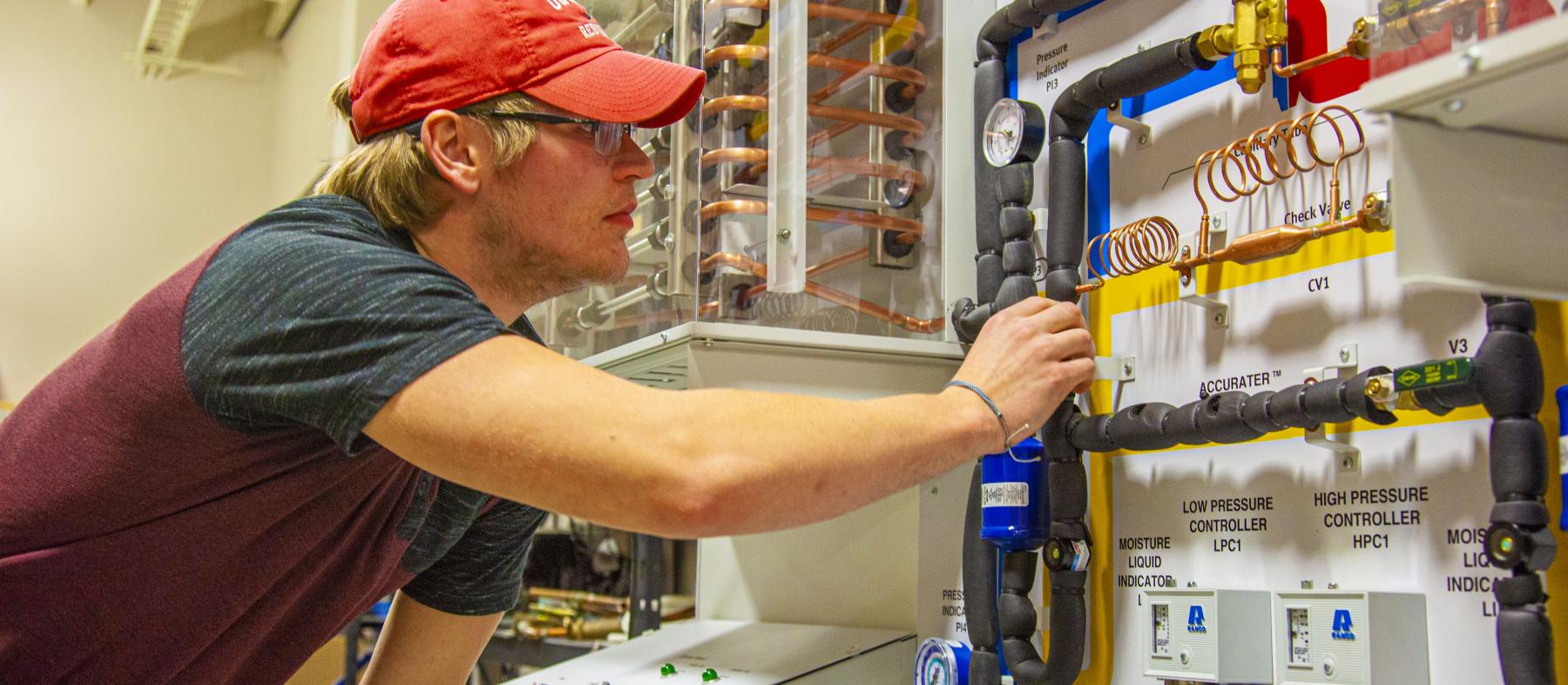Program Goals:
The Utility Technology Certificate is designed to prepare students for entry-level positions in the electrical, gas, and/or communications utility industry. The utility industry has forecast a strong need for technologically-literate employees in the next several years for positions, such as overhead and underground line workers, meter workers, substation maintenance personnel, gas workers, and communication workers. The program includes courses that provide students with an introduction to the utility industry. In addition, students will demonstrate their practiced and acquired skills learned in the classroom as well as field work experience with utility partners.
Student Learning Outcomes:
Upon completion of the program, graduates will be able to:
- Develop the skills needed for the understanding of business office technology, operating systems functions, Internet technology, and productivity suites.
- Be aware of the requirements for employment and certifications needed to compete for employment in the utility industry.
- Be introduced to the basic principles of utility installations, including basic theory of electric, gas, and communications.
- Apply the concepts and methods of mathematics to solve problems.
- Develop critical thinking and reading, thesis development, organization and grammatical correctness, as well as evaluate, incorporate, and document sources from print, Internet, and a library database to support their writing.
- Continue to gain knowledge of the principles of utility work methods along with government regulation and facility installations.
- Gain an understanding of OSHA regulations that guide this industry, and obtain OSHA certification.
- Gain an introductory understanding of basic scientific principles.
- Apply their knowledge in the field with hands-on work experience, and demonstrate industry work methods and safe work practices.
Admissions Process:
Admissions inquiries should be directed to admissions@qcc.mass.edu. Prospective students may apply to the program of their choice by following the enrollment steps at www.QCC.edu/enrollment-steps.
Program Admissions Requirements:
Students should note that some first semester courses carry minimum prerequisites. Refer to the program grid.
- High School Diploma or GED/HiSET.
CORI, SORI, Finger Printing & Drug Testing:
Criminal Offender Record Information (CORI) and Sex Offender Registry Information (SORI) checks are not required. Fingerprinting and drug testing are not required.
- CORI/SORI checks and fingerprinting may be required by utility employers. Drug testing will very likely be performed by prospective employers. Additionally, serious driving infractions will affect an individual’s employability.
Additional Cost:
See the Program Fees page.
- Cooperative work experience participants will be expected to wear protective boots (with steel or composite toes and an EH rating) at the utility training site (approximately $100.00-$200.00).
Technical Performance Standards:
See the Technical Performance Standards page. (Note: Not all programs have technical performance standards).
Credit for Prior Learning:
Credit for Prior Learning (CPL) allows students to use skills they already have towards a college degree or certificate. Work, life, volunteer and military experience may be translated into credit, allowing students to take fewer classes and earn their degree faster. CPL eliminates redundancies for students who have already earned credentials or mastered skills required for their program of study. Email experience@qcc.mass.edu for more information and eligibility.
Career Outlook:
Please consult the Massachusetts Career Information System at https://masscis.intocareers.org/ or the Occupational Outlook Handbook at www.bls.gov/ooh/ for specific occupational information. The CIP code for this program is 47.0103.
Transfer Articulations & Opportunities:
Prospective students may learn more about transfer articulation agreements at www.QCC.edu/agreements. More information regarding transfer opportunities is available at www.QCC.edu/transfer.
Additional Information:
- Students are advised to enroll in all Semester 1 courses in the Fall semester in order to progress to Semester 2.
- Students should enroll in all Semester 2 courses in order to complete the program in one academic year.
- Individuals seeking employment with utility companies must also meet employer-specific hiring requirements; this may include CORI/SORI checks, fingerprinting, and drug testing.
- Applicants to this program must have a valid learner’s permit and a driving record that is suitable for prospective employer’s insurance requirements. A Request for Driving Record will be forwarded to the MA Department of Transportation on behalf of each student accepted to the program each Fall semester.
- Students should note that a valid driver’s license will be required for employment in this field; individuals with driving and/or legal infractions should be aware that their actions may impact their employability.

